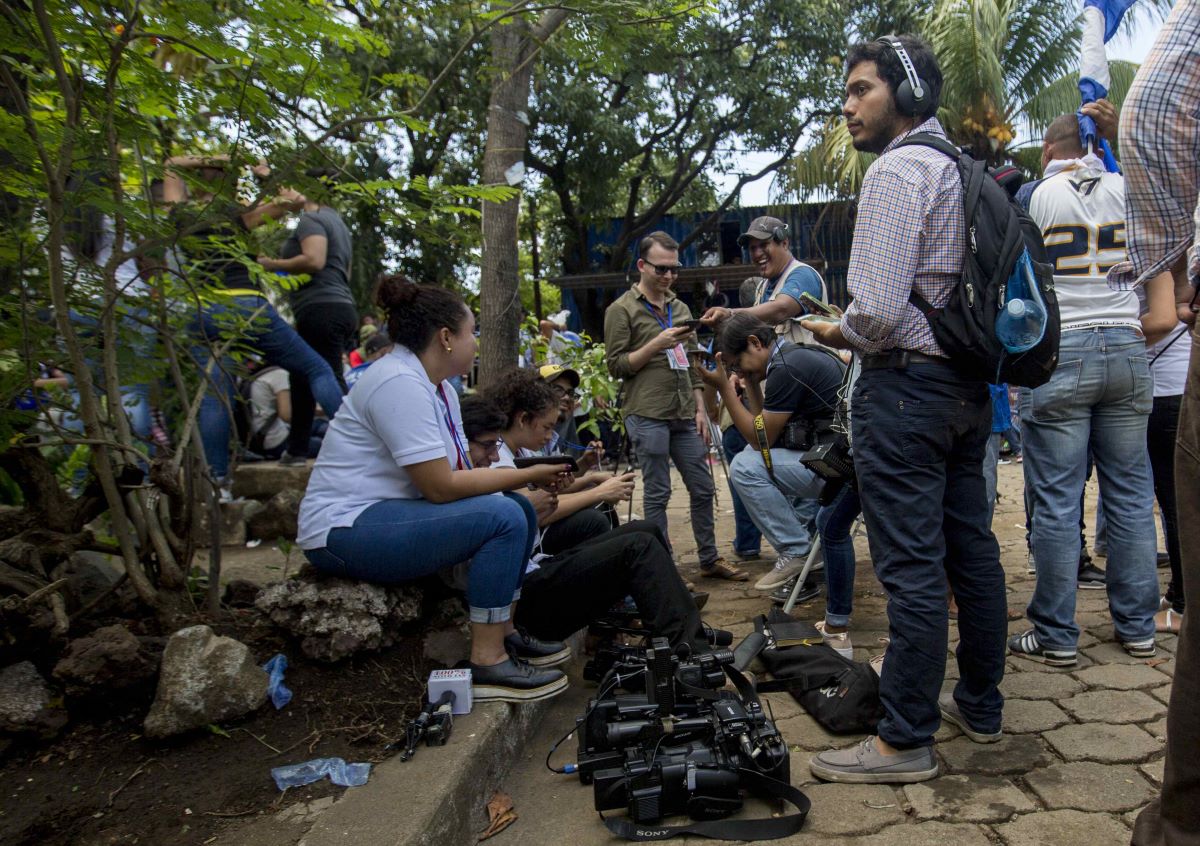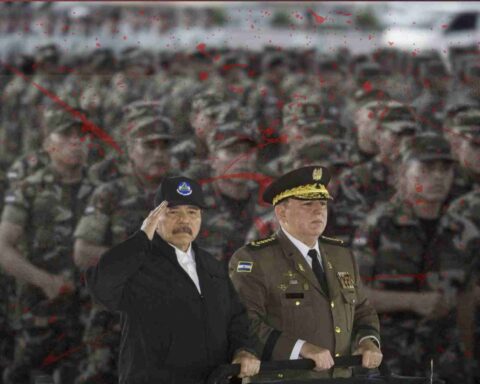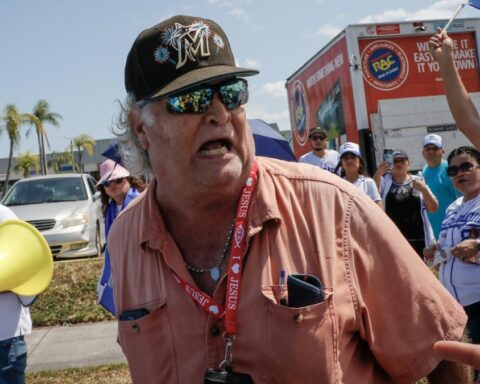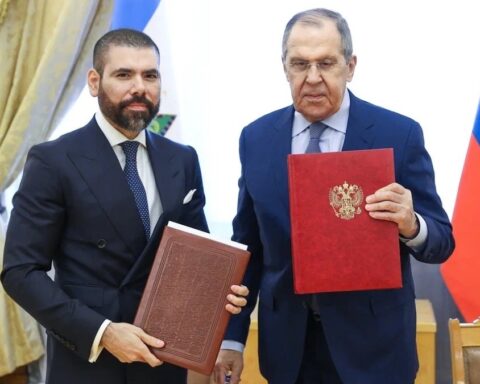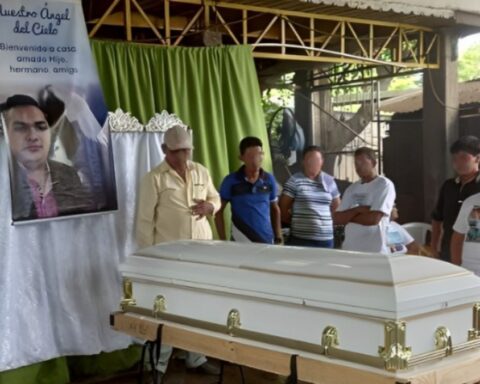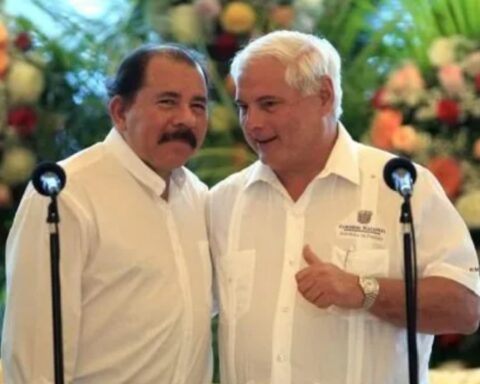Nicaraguan journalists are increasingly afraid to denounce the attacks on press freedom or those that suffer their integrity in Nicaragua, a country submerged in a socio-political crisis since April 2018, the regional network of civil society organizations in America warned on Wednesday. Latin Voices of the South.
In a report entitled “The ‘culture of silence’ increases in victims of attacks on freedom of the press in Nicaragua,” Voces del Sur warned that the “insensitivity” of the government of President Daniel Ortega “and the cruelty against journalists and dissidents in general has forced men and women of the press to avoid denouncing the aggressions of which they are victims”.
This regional network assured that last April it was aware of five alerts of police siege against four journalists and a media outlet, and none of “these violations of press freedom” were documented in the report, “at the request of those affected, who at the cost of silence, they seek to avoid further reprisals.”
“Voces del Sur expresses its concern about the increase in self-censorship in Nicaragua, and although we are aware that there is no type of security for the victims, we believe that when an attack is not reported, it is normalized and the victim tacitly accepts it,” he said. .
Related news: Persecution and prison threats in “El Chipote”, among the attacks on journalists documented in April
That network urged to expose the aggressions “to contribute to historical memory and to the demand for justice and democracy in the near future that all Nicaraguans expect.”
THEY ASK FOR ACCOMPANIMENT FROM JOURNALISTS
Likewise, the network urged national and international human rights organizations “to provide accompaniment to journalists who are still in Nicaragua and who continue to be victims of aggression by state and parastatal bodies.”
He also encouraged “citizens in general to support, provide information and any other type of necessary support to independent journalists, both those who remain in the country and those who have been forced into exile.”
He also asked the governments receiving the exodus of Nicaraguan journalists to continue receiving them and offer them “humanitarian, technological and economic cooperation.”
The Nicaraguan Independent Journalists and Communicators (PCIN) movement estimates that at least 120 Nicaraguan journalists have requested refuge in different countries, mainly in Costa Rica, since April 2018, when demonstrations broke out against the Ortega government, which it described as an attempt of a coup d’état and that left at least 355 dead, according to the Inter-American Commission on Human Rights (IACHR).
68 ATTACKS ON PRESS FREEDOM REPORTED
According to the report by Voces del Sur, last April “the violations of press freedom did not stop in Nicaragua.”
“In this period, 68 cases of violations of press freedom were documented: 61 were perpetrated against the media and seven against natural persons,” he specified.
Among them, he mentioned the cases of the journalist Noel Miranda, from the digital portal Article 66, “who was the victim of three threats in different spaces,” and the attempted stigmatization campaign against the journalist Geraldine Domínguez, from Canal 10, who was exposed on social networks. by a user identified as a Sandinista militant for using public transportation.
Related news: Two women journalists murdered in Veracruz, Mexico
That network maintained that “state agents continue to lead the attacks against the independent press, followed by the unidentified, but that their actions are similar to those of parastatals.”
Nicaragua has been going through a political and social crisis since April 2018, which has been accentuated after the controversial general elections on November 7, in which President Ortega was re-elected for a fifth term, fourth consecutive and second together with his wife, Rosario Murillo, as vice president, with his main contenders in prison.

